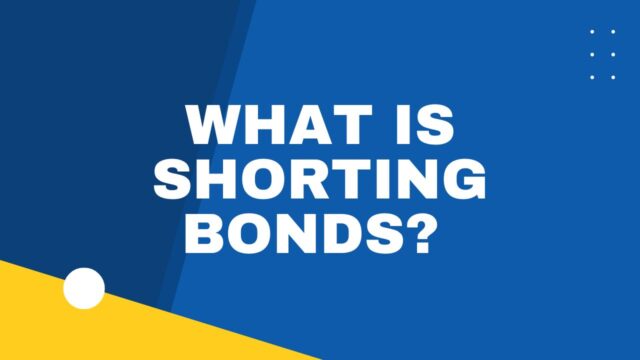
For investors looking to diversify their portfolio and take on more risk, shorting bonds is one way to do it. Shorting bonds means you are selling a bond with the expectation that the price of the bond will go down so that you can buy it back at a lower price.
It’s important to note that shorting bonds involves a lot of risk, so investors should be aware of what they’re getting into before making any decisions. Let’s dive in and examine how shorting bonds works.
How Shorting Bonds Works
When you short a bond, you are essentially borrowing someone else’s money in order to purchase the bond. You then sell the bond in the open market, hoping that its value will drop. When it does, you buy it back at the lower price and return it to the lender, pocketing the difference as profit. Of course, if the value of the bond rises instead of falls, then you have lost money on your investment.
The amount of money you can make from shorting bonds depends on how much leverage you use when making your trade. Leverage is simply borrowed money that allows an investor to increase their buying power. For example, if an investor has $10,000 and uses 10x leverage when trading a bond, they can control $100,000 worth of assets with their initial investment of $10k—which increases both potential gains and losses significantly.
Benefits & Risks Of Shorting Bonds
Shorting bonds has numerous benefits for investors who choose to engage in this risky form of investing; those include increased returns from market downturns and increased liquidity when compared to other forms of investing such as stocks or mutual funds.
The key benefit is that by shorting bonds rather than buying them outright, investors can potentially make money from market downturns as well as upturns—making them more resilient against market volatility than long-term investments like stocks or mutual funds. Of course there are also risks associated with short-selling bonds; these include higher costs due to leverage and higher taxes due to trading fees incurred during transactions.
Conclusion:
Overall, while there are many benefits to short-selling bonds including increased returns during market downturns and increased liquidity when compared to other forms of investing such as stocks or mutual funds – there are also significant risks involved including higher costs due to leverage and higher taxes due to trading fees incurred during transactions which must be taken into account before engaging in any type of trading activity such as this one. As always – only invest what you can afford to lose! Intended Audience: Investors looking for new strategies for diversifying their portfolios without taking on too much risk.


































